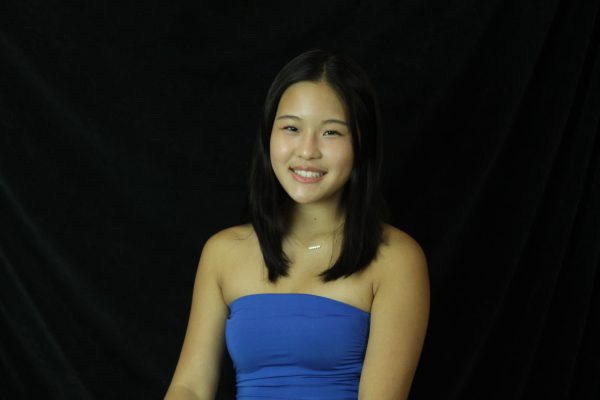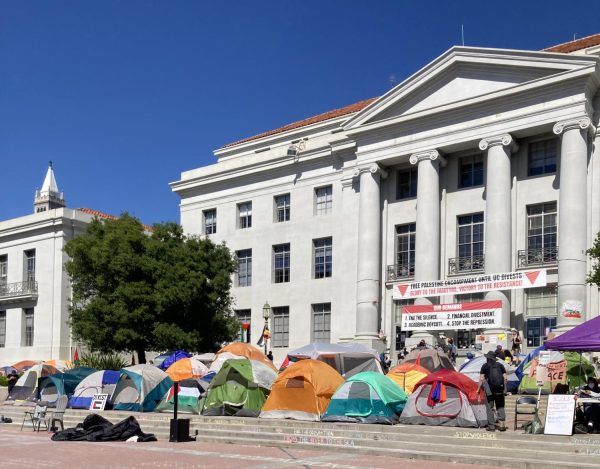
Editor’s Note: Names and faces have been redacted and blurred as per request to preserve anonymity.
College campuses nationwide are erupting with pro-Palestinian student protests and encampments calling for a ceasefire in Gaza and for universities to divest money from Israel. To gain an inside perspective of the protests, The Paly Voice contacted Palo Alto High School alumni who are attending these colleges to share their experiences amid the encampments.
The protests at the University of California, Los Angeles, sparked conflict among Zionists and pro-Palestinian activists. A Los Angeles Times article reports that the protesters blocked entrances to the Powell Library and Royce Hall, singling out students who identified as Zionists. Additionally, a New York Times article recounts how pro-Palestinian student activists at UCLA were attacked with rocks, lasers, fireworks and pepper spray by counter-protesters.
During an interview with the Voice on May 1, a former Paly student (class of 2023) studying at UCLA who wishes to remain anonymous said he was shocked at the violence from the protest.
“From what I know it’s been going on for about a week, but on Monday night it turned into a violent activity,” he said. “Me and my friend went to go see what was happening because we saw it on the news and it looked pretty violent. There was pepper spray and tear gas, and a lot of people that were punching each other and getting beat up. One of my friends also got pepper sprayed because he was trying to break a fight and that was [started] by a pro-Israeli counter-protester.”
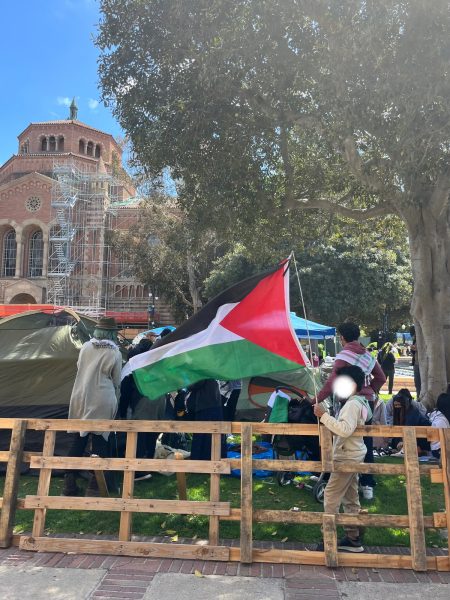
NBC reports that 210 students have been detained and arrested by the Los Angeles Police Department. According to the UCLA Paly alumnus student, the protesters were warned of possible police intervention prior to the student arrests.
“As of right now [May 1], the police have come in and forcefully gotten rid of the encampment,” he said. “They [the police] marched on in riot gear and started making arrests. The police told everyone in the encampment hours before they came that they needed to clear the area and that they were going to start arresting, so everyone who did get arrested and who stayed there had a conscious decision to do so and support the whole political movement.”
During the conflict between the protesters and counter-protesters, the Paly alumnus at UCLA said that counter-protesters inflicting violence weren’t detained by police — who were mainly arresting peaceful pro-Palestinian protesters.
“From what I know the pro-Israel counter-protesters initiated the violence,” he said. “There was some self-defense from what I saw, but not too much. Out of everyone arrested I don’t think any of them were the counter-protesters who were the most violent. It was the protesters themselves who were the ones who got arrested.”
On May 1, the House of Representatives passed the Antisemitism Awareness Act bill in a bipartisan 320-91 vote. According to an article from The Washington Post, the bill will change the federal definition of antisemitism to include speech that claims that the State of Israel is a “racist endeavor,” applies “double standards” to the State of Israel that is not “expected or demanded of any other democratic nation” and “drawing comparisons of contemporary Israeli policy to that of the Nazis.”
According to a Paly alumnus (class of 2022) and current New York University junior, who wishes to remain anonymous, the protests have elicited a rise of antisemitism and hateful behaviors.
“Lately, there has been a significant ongoing encampment of a few hundred protesters at NYU, which has threatened safety,” he said. “As a Jewish student at NYU, I’ve witnessed a lot of protests concerning the Israel-Hamas war. I’ve witnessed extreme antisemitism, as well as varying degrees of Islamophobia. I’ve been screamed at, called a baby killer, been told I was committing genocide [and] been called a dirty Jew.”
According to statistics published by the Anti-Defamation League, there has been a spike in antisemitic incidents since the Oct. 7. attack by Hamas on Israel. The Paly graduate at NYU said he is concerned and fearful of the increased antisemitic sentiments in the U.S.
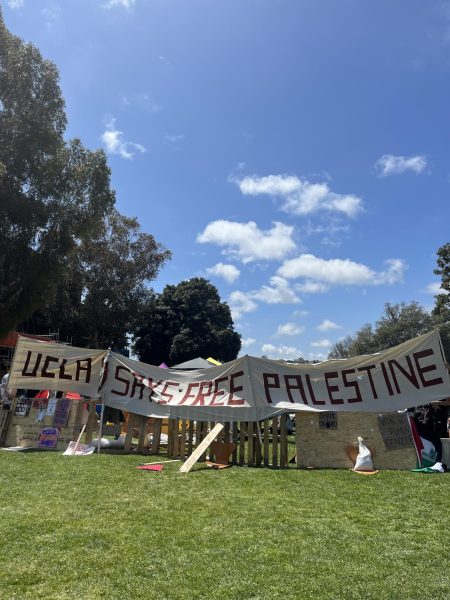
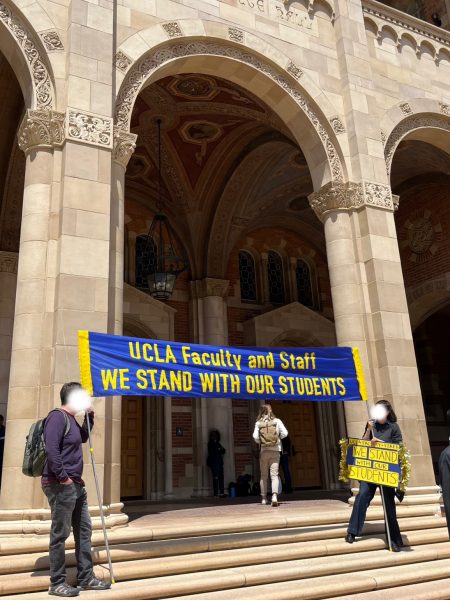
“Watching the spread of antisemitism in the United States as these encampments spread terrifies me,” he said. “Anti-Zionism or the refusal to recognize the Jewish state of Israel is antisemitism, as 90% of Jews are Zionists. I think this spread is a reflection of the failure of the American education system to lower antisemitism.”
According to a poll cited in an AP News article, more than half of Asian-Americans and Pacific Islanders believe that the United States should support and offer aid to Palestinians. Former Paly student and Associated Student Body President Johannah Seah (class of 2023), who is currently majoring in Asian American Studies at the University of California, Davis, urges everyone, including Asian Americans, to stand in solidarity with Palestinians.
“With the wave of student protesters in college campuses now who are protesting the genocide being committed by Israel against Palestinians, I can’t help but think about the Third World Liberation Front Protests and how so many Asian Americans rose up in solidarity to fight and dedicated their lives to social change and revolution,” Seah said. “Don’t let this pass by as something distant. Don’t stay apolitical. We as Asian Americans need to stand in solidarity and be the revolution. Our histories are often forgotten even in our own communities. Do not let yourself forget. We are not free until everyone is free.”
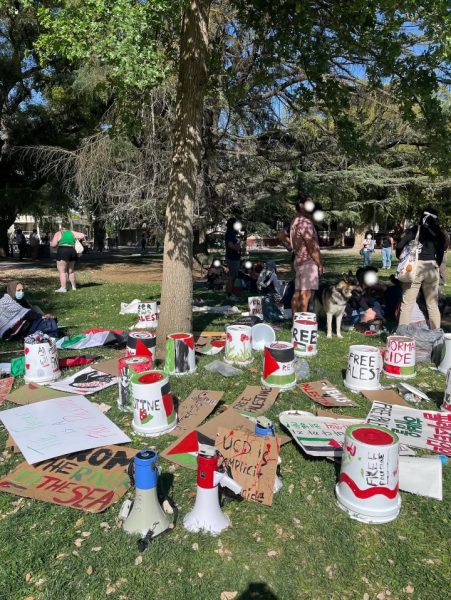
Seah said the encampments are an important time for students to take action.
“I know many of you, including me, have grown up in a privileged space, and I implore you to use that position to think critically and see injustices clearly,” Seah said. “See why we desperately need solidarity.”
According to a Paly graduate (class of 2023) who is studying at the Massachusetts Institute of Technology, that wishes to remain anonymous, MIT encampment protests are a commendable representation of the protesters’ beliefs.
“The tents are a tangible reminder of what’s happening in Gaza, but otherwise campus felt normal,” she said. “People stop by at the tents to chat with their friends and sit together. I think the protesters are admirable for their courage to stand up for what they believe in.”
However, according to the Paly alumnus currently attending NYU, the protests will not prompt a viable solution to the Israel-Hamas war in Gaza.
“I don’t think the encampments impact the actual war,” he said. “I think the encampments are a reflection of a privileged Western need to make a conflict halfway around the world about themselves. Many of these protesters are highly privileged, liberal university students who have little connection to the conflict and are uneducated about it.”
He added: “While the U.S. is absolutely involved in the war, most of the demands the protests call for are incredibly complex and would barely impact the war,” he said. “At most universities, students call for divestment from Israel. At Columbia, students are calling for the removal of all University funds from current actions that are connected to what they call ‘Israel apartheid, genocide and occupation in Palestine.’ … As these students called for this in their encampment, Jewish students and faculty at Columbia were told to stay home for their personal safety.”


